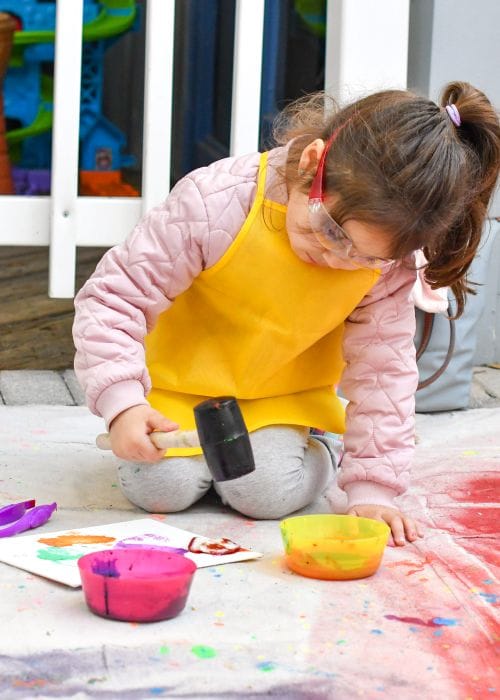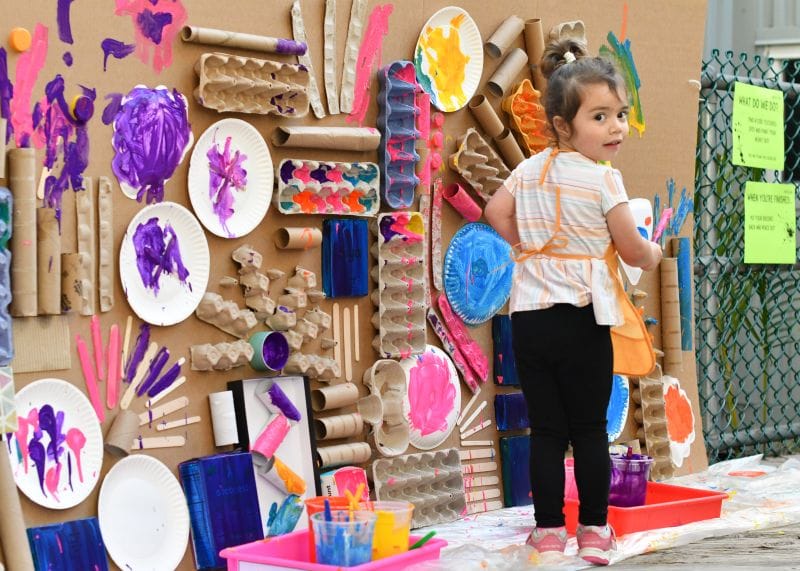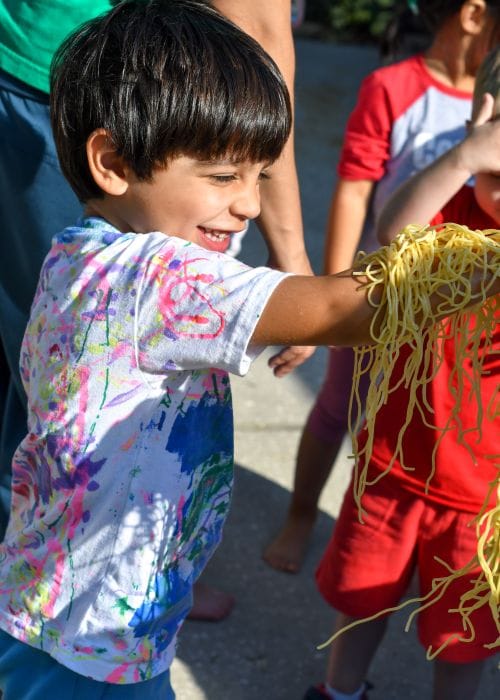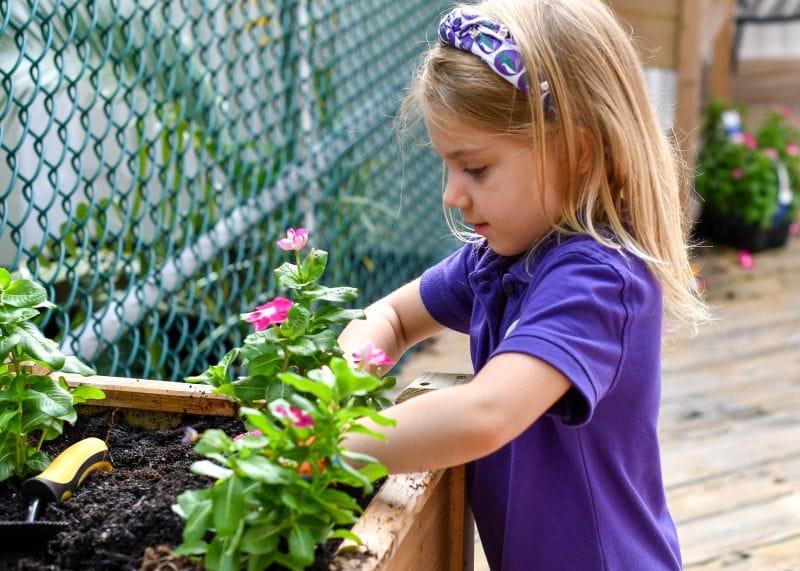Encouraging Wonder: What Happens When Preschoolers Ask Why
It happens almost overnight. You blink, and your baby suddenly has become a walking, talking little person with an intense desire to know things.
The word “why” probably falls from their mouths at least a few times a day.
Like most parents, you provide them with an answer. Sure, it might be a really good answer. But what would happen if instead of telling them something, you asked a question back?
As an early childhood teacher for the past decade, I’m used to 3- and 4-year-olds peppering me with questions. And what I’ve found is that amazing discoveries can happen when you ask a question back or guide them to find their own answers.
It’s known as self-directed learning, and in the prekindergarten classroom, it means providing young students with the opportunity to direct their own learning experiences. At this age, this will hardly ever look like sitting down at a desk and completing a worksheet. Instead, it is learning through hands-on experiences and engagement. It is learning through play and inquiry.

Pre-kindergarten teachers play an integral role in setting the stage for self-directed learning. Corbett Prep PreK teachers begin a unit of study by introducing a concept and then encouraging students to help guide the direction of the lessons. The type of learning the students experience encourages them to be risk-takers in the classroom, tackling new challenges and asking new questions.
So what happens when a child practices self-directed learning?
- Brain development: Corbett Prep teachers encourage wonder and help children learn how to ask questions. A PreK3 self-awareness unit explores similarities and differences, for example, prompting students with “I wonder” statements: “I wonder what makes me the same as my friends. I wonder what makes me different.” Teachers facilitate discussion and coax students to ask deeper questions that the class can investigate.
- Social development: Preschoolers learn through their interactions with one another. They learn to play cooperatively, figuring out how to take turns, share toys or participate in dramatic play. Through self-directed play, they find friends with similar interests and explore topics together.
- Emotional development: Sometimes playing with friends or participating in a hands-on lesson is frustrating. Although parents or teachers may want to intervene, letting children work through challenges gives them the chance to learn self-regulation. They learn how to manage their big feelings in a safe environment, building confidence as they make decisions and solve problems independently.
- Physical development: Physical activity often goes hand-in-hand with self-directed learning. A nature walk gives children a chance to move their bodies while tapping into their curiosity as they search for leaves, lizards and cool rocks. Growing plants from seeds raises lots of questions about science and even nutrition and allows students to build fine-motor skills as they handle shovels or water flowers. Crafts with scissors, glue sticks and writing utensils also exercise those muscles but let students work at their own pace.

In a time where both adults and children are used to immediate access to information, it can be challenging to practice patience. But searching for answers pushes students to tap into their own creativity and develop problem-solving skills. And they retain more knowledge when they are active participants in acquiring it.
Corbett Prep’s PreK3 class can explain to their parents at an art show the difference between Ansel Adams and Jackson Pollock because they spent one morning photographing the campus and another morning making a mess with splatter paint. A unit on the five senses comes alive because they squished spaghetti, they contrasted sweet and sour tastes and they rattled tambourines.

Teaching children to become inquirers ultimately benefits them even more than providing quick answers. It’s exciting to see the creations, observations and discoveries that arise when kids take charge of learning.
Kelly Rzeszut is a PreK3 teacher at Corbett Preparatory School, a private independent school in North Tampa.
Presented by Corbett Preparatory School
Related:


